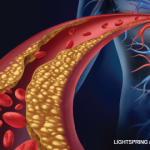 The U.S. Food and Drug Administration (FDA) has toughened the existing warnings for nonsteroidal antiinflammatory drugs (NSAIDs) due to their stroke and myocardial infarction (MI) risk increase.1 Due to a continual review of these products, FDA is requiring label updates for all prescription NSAIDs. Over-the-counter (OTC) NSAIDs already list the increased risk of MI and stroke on their labels.
The U.S. Food and Drug Administration (FDA) has toughened the existing warnings for nonsteroidal antiinflammatory drugs (NSAIDs) due to their stroke and myocardial infarction (MI) risk increase.1 Due to a continual review of these products, FDA is requiring label updates for all prescription NSAIDs. Over-the-counter (OTC) NSAIDs already list the increased risk of MI and stroke on their labels.
The FDA, the Arthritis Advisory Committee and the Drug Safety and Risk Management Advisory Committee recommended that prescription NSAID labels be updated to include the following information:
- MI or stroke can arise when first beginning an NSAID, and the risk may increase with longer use.
- MI or stroke risk appears to be higher with higher NSAID doses.
- Initially it was felt that all NSAIDs had a similar risk, but new information makes it less clear that these risks are similar for all NSAIDs. The new data cannot determine if any particular NSAID is riskier than any other one.
- Patients with or without heart disease or heart disease risk factors are at an increased risk of NSAID-related MI or stroke.
- Generally, patients with heart disease or heart disease risk factors have a greater chance of developing an MI or a stroke following use of NSAIDs than those that do not. This is due to a higher baseline risk.
- Patients who receive NSAIDs after a first MI were more likely to die in the first year following the MI vs. patients who did not receive NSAIDs following their first MI.
- Using NSAIDs increases the risk of developing heart failure.
Drug Facts labels of OTC non-aspirin NSAIDs will also be updated with MI and stroke information.
Prescribers and patients should be on the alert for cardiac-related side effects while using NSAIDs. Any side effects with NSAIDs should be reported to the FDA’s MedWatch Program. Patients taking NSAIDs should be advised to get medical attention immediately if they experience such symptoms as chest pain, shortness of breath, trouble breathing, weakness in one part or side of their body, or slurred speech.
Michele B. Kaufman, PharmD, CGP, RPh, is a freelance medical writer based in New York City and a pharmacist at New York Presbyterian Lower Manhattan Hospital.
References
- U.S. Food and Drug Administration. Safety Alerts: Non-aspirin nonsteroidal antiinflammatory Drugs (NSAIDs): Drug Safety Communication—FDA strengthens warning of increased chance of heart attack or stroke. 2015 July 9.


